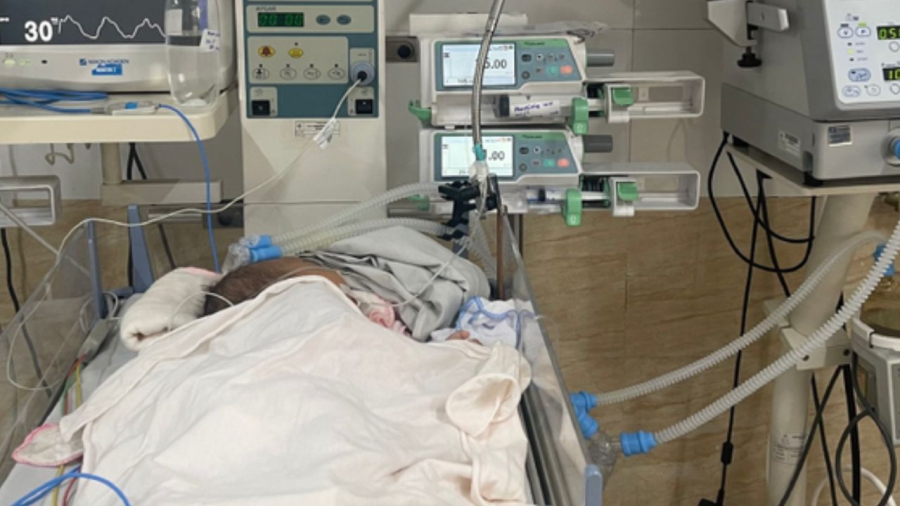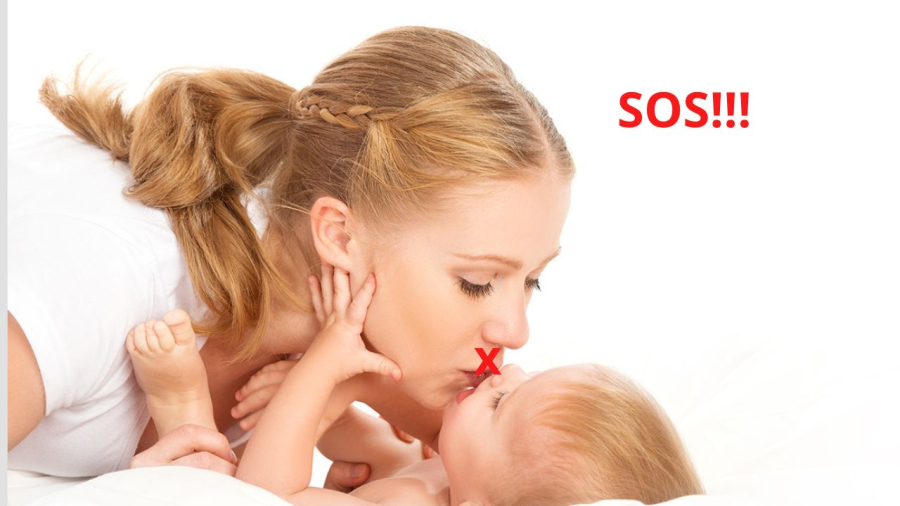An adult’s kiss can accidentally put children at risk, a not uncommon and ongoing occurrence
The risks of kissed-induced danger in children have been repeated mentioned but many people remain dismissive or forgetful. Recently, information from Hung Vuong General Hospital (Phu Tho) revealed that a patient, a 39-day-old baby boy named P.H.D (residing in Thanh Ba district, Phu Tho), fell into a critical condition due to respiratory syncytial virus (RSV) infection.

The symptoms of the baby included frequent coughing, poor breastfeeding, and difficulty breathing, prompting his family to take him to the hospital. The RSV test came back positive. The baby was admitted in a state of breathing with groans, multiple prolonged breath-holding episodes accompanied by pallor, and a severe drop in blood oxygen levels that threatened his life. Realizing the seriousness of the baby’s respiratory distress, the pediatricians immediately initiated resuscitation measures, intubated the baby for assisted mechanical ventilation, and provided supportive treatment.
It took 4 days on a ventilator for the baby’s condition to improve, enabling him to be weaned off the ventilator. RSV typically surges during transitional seasons, particularly fall-winter or spring-summer periods. While adults may not experience dangerous symptoms when infected with the virus, it poses a risk to newborns. Kisses can be a mode of virus transmission. The initial symptoms often include coughing, sneezing, and runny nose, which can be mistaken for other respiratory illnesses. This virus can cause severe complications that endanger lives. The virus is transmitted through droplets and direct contact, such as eating, talking, kissing infants, or touching surfaces with RSV presence.

Therefore, adults should absolutely not kiss children, especially on their mouths. Kisses, while expressing love, can be extremely dangerous for young children. Besides this virus, kisses, especially on the mouth, can also cause various other diseases transmitted through respiratory secretions, saliva, breath, and droplets. Even biological parents should not kiss their baby’s mouth, particularly when coming back from unfamiliar environments or when feeling unwell themselves.
In the event that a mother caring for her child shows symptoms such as fever, sneezing, or coughing, she should wear a mask while breastfeeding. During seasonal transitions, pay attention to the health of the baby and maintain cleanliness in their surroundings, belongings, and clothing. With neighbors and relatives, there is no need to hesitate when someone wants to kiss your child. You can explain or provide articles as evidence for adults to understand and sympathize.
































